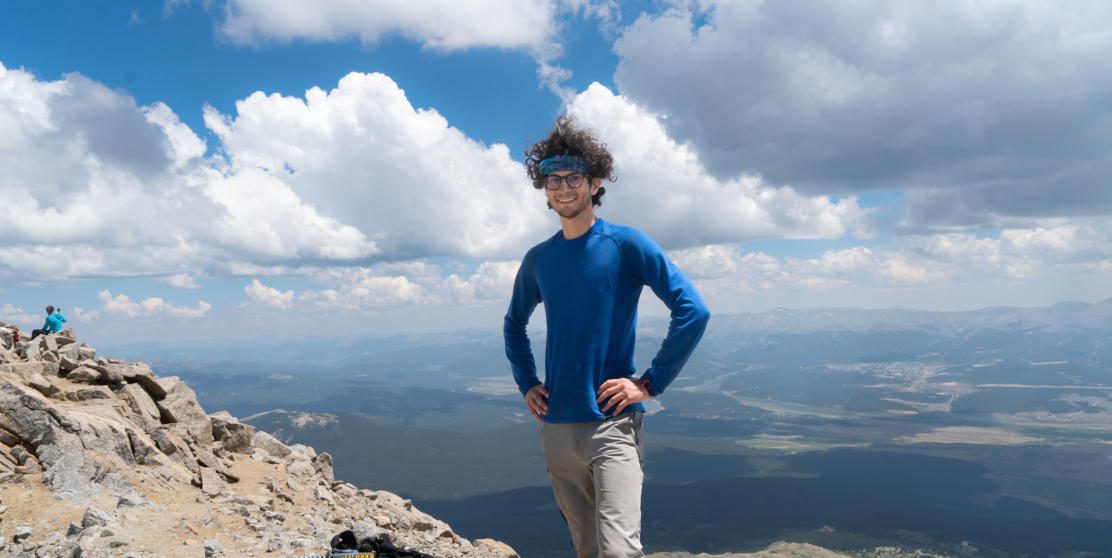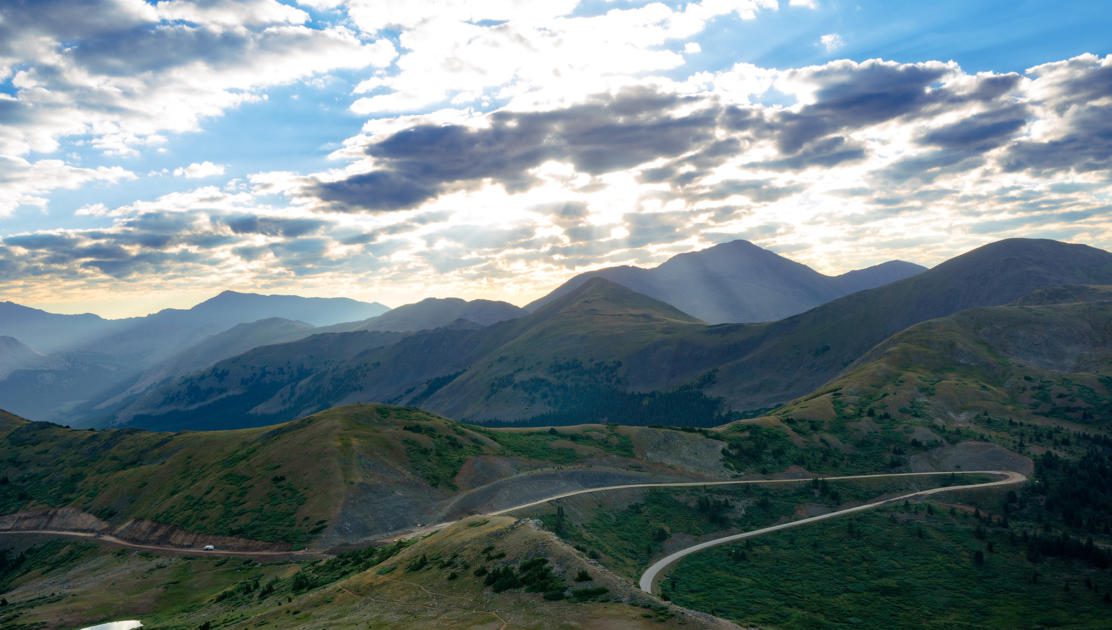Re-committing Ourselves to the Land
Getting to know our new Pathways to Planetary Health program director
by Tony Cisneros
In 2018 I thru-hiked the 485 mile Colorado Trail. Winding from Denver to Durango, I passed through five major river systems, six wilderness areas, and eight mountain ranges over the course of 27 days. While I had lived in Colorado for most of my life, I had spent the last several years flying around the country for work. This was the first time I had paused to connect with the lands of my home state.
Close to Denver, the mountains were dry and hot, and the trails were clogged with day-trippers escaping the metro area. Near Leadville, the two-mile high city at 10,151 feet, I walked through the historic Inter-Laken Resort. And as I approached Silverton I cheered on Hard Rock 100 runners, some of the toughest athletes in the world. By the time I reached Durango, not only had I lost 15 pounds, but I had a deeper appreciation for the diversity of our ecosystems and culture.
When I got off the trail, I knew that I wanted to protect these and similar lands.
I pursued a joint MBA and Master of Environmental Management program at Yale where I learned about systems thinking in conservation — understanding different stakeholders, goals, and engagement necessary to achieve desired outcomes. I worked for the National Park Service Appalachian Trail unit in Harpers Ferry, WV. I supported Colorado’s newest state park — Fisher’s Peak — as a part of the Science and Recreation Work Group, a coalition of stakeholders contributing to the state-mandated master planning process. Each of these opportunities helped me deepen my understanding of conservation and the difficulty of managing land for multiple uses in a complex world.
But in a world where everything is interrelated, land management was only part of the solution.
At Yale I spent three years as part of the 2050 Fellows, a program convened by Patagonia’s Director of Philosophy, Vincent Stanley. Each month we would select a topic — finance, regenerative agriculture, circular economy, etc. — and analyze how it would ideally look in the year 2050 and how it might get there. What I saw was that all of the topics were interrelated. We had to re-think the fundamental incentives, tools, and narratives across sectors if we wanted to achieve truly sustainable outcomes.
Through Vincent, I found the Garrison Institute. Its vision for compassionate and intentional action to address planetary health spoke to me. I helped develop our ESG Frameworks and Finance as a Pathway to Planetary Health course. We are now delivering it to a Global Top 10 bank, teaching planetary health as a framework and guiding bank employees to think about the impact of their work, not just on their clients, but through the actions of their clients. By leaning into planetary health, we insist on a systems-based approach to action.
I am confident that as we develop solutions to these complex, systems-based issues, ecosystems and species will be protected for future generations. Communities will be preserved and evolve. And the mosaic that makes Colorado so special — that makes the land wherever you are so special — will be stronger for our work. I am excited to advance our programming to achieve these goals as the new Pathways to Planetary Health Program Director. Join us on the journey and welcome.

Tony Cisneros is the Garrison Institute’s Pathways to Planetary Health Program Director. Prior to joining the Institute, he worked as a consultant at Deloitte Consulting LLP including on strategic organization planning, large-scale technology implementation, and system design. Tony holds a B.A. from Northwestern University with majors in Economics, Legal Studies, and German, and was a Brady Scholar in Ethics and Civic Life. He recently completed a joint masters degree at the Yale School of Management and Yale School of the Environment.
